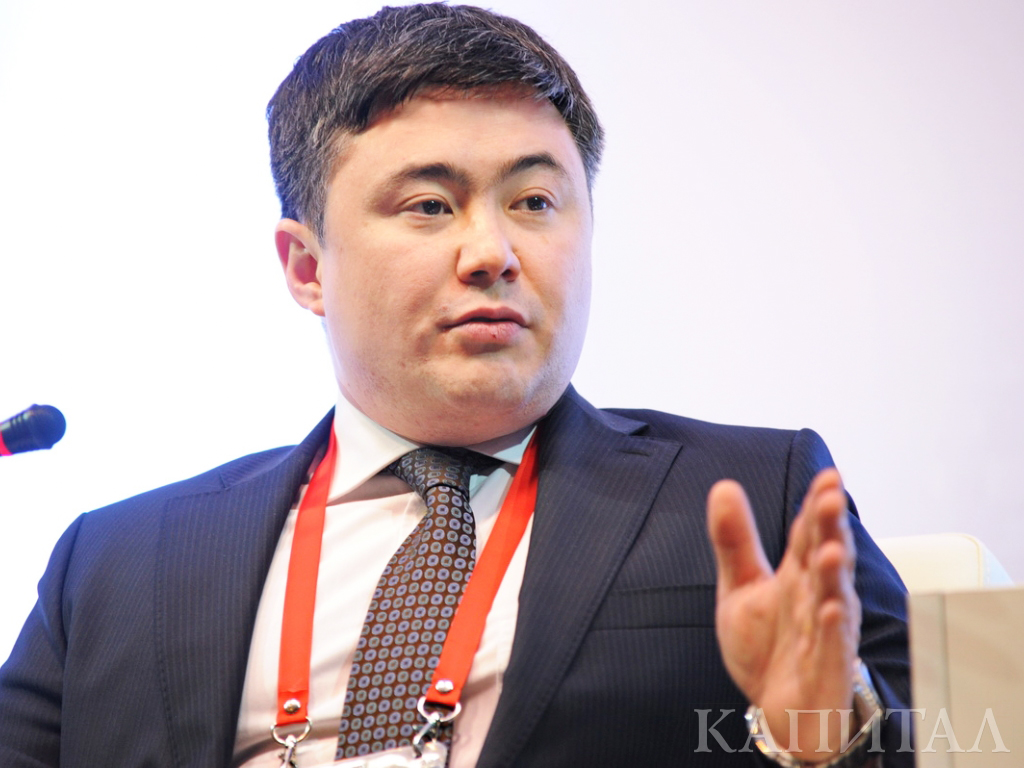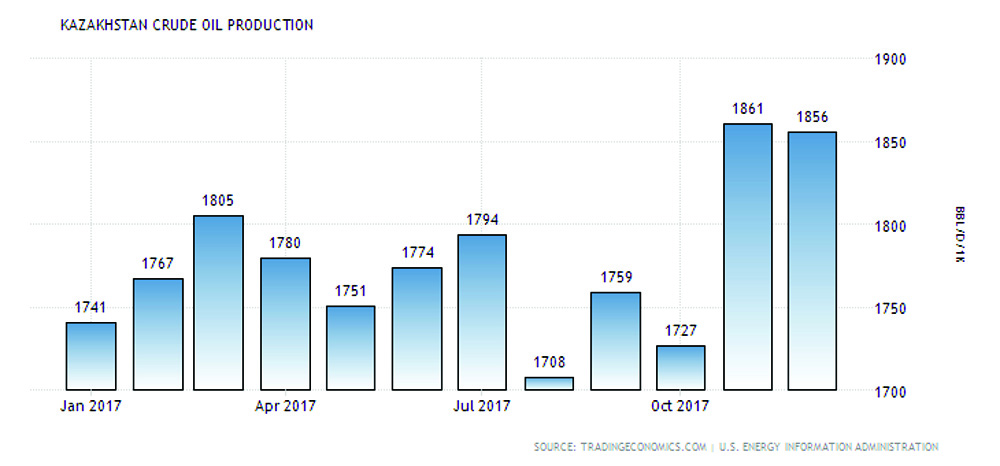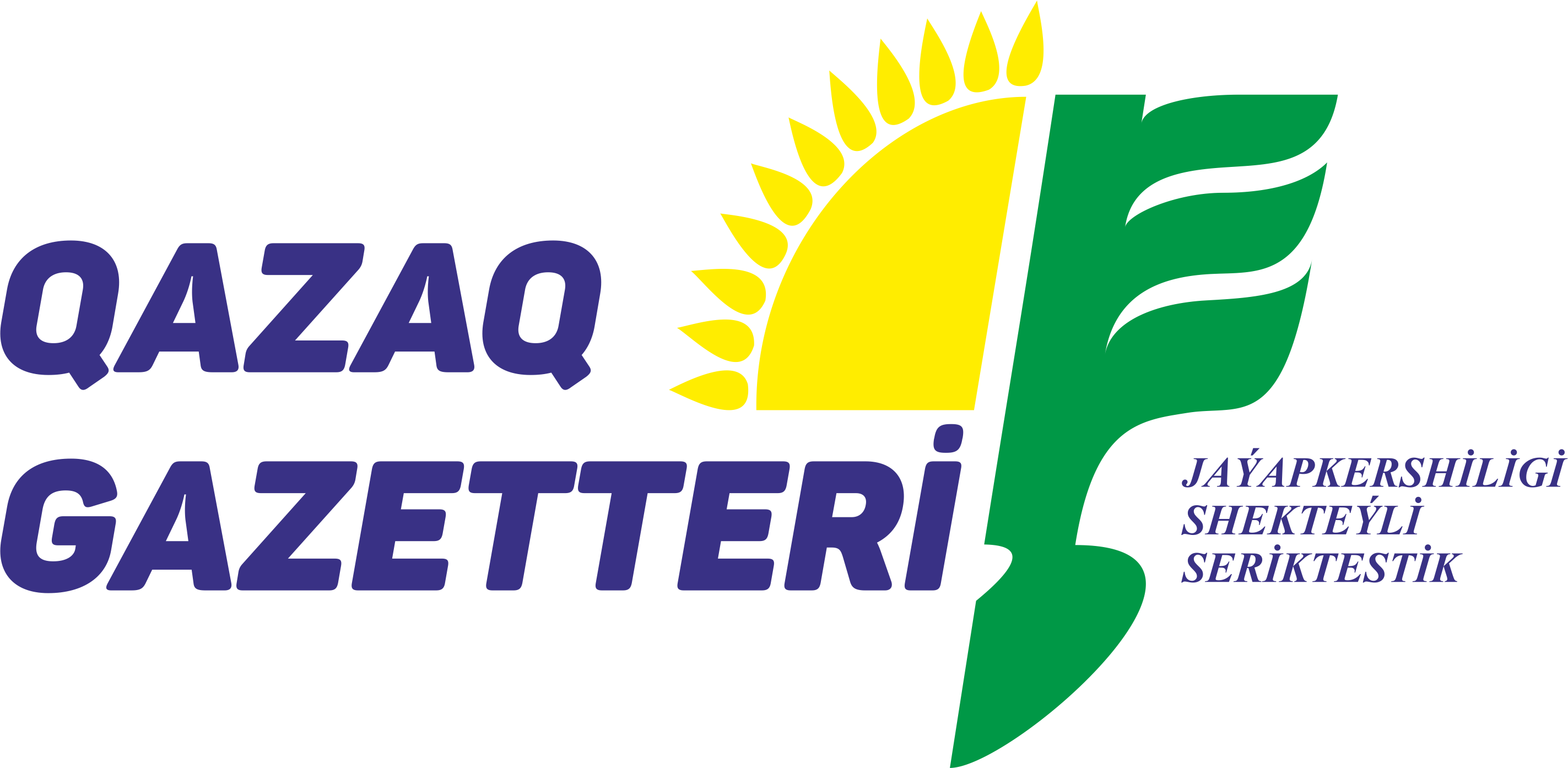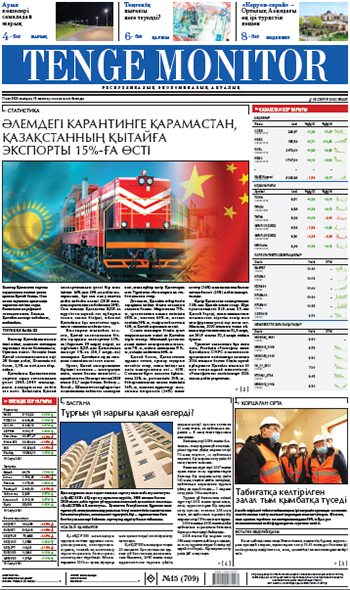- Қаржы
- 19 Сәуір, 2018
Tenge is sensitive to changes in the Russian economic climate

The Russian ruble has bounced back as oil prices have surged, Bloomberg reported April 12. The ruble had fallen as much as 11 percent this week to 65.06 per dollar, the weakest since 2016, because of U.S. sanctions against Russia and geopolitical uncertainty in Syria, which ultimately helped drive up crude prices, thereby contributing to the Russian currency’s bouncing back. At least, as they say, one good thing came out of all this. We have to assume that the Kazakh governmental and financial authorities are closely following the sanctions being imposed on Russia. Evidence of this is provided by Economy Minister Timur Suleimenov who said the government and the central bank considered the market’s reaction as being driven more by psychology than fundamentals. There is a feeling that things are under control. Anyway, the Kazakh governmental and financial authorities have really got to keep an eye on the Russian currency market. That’s because it is Kazakhstan’s main economic and trading partner. The Kazakh tenge is sensitive not only to oil price fluctuations, but also to changes in the Russian economic climate. On April 10, it lost 4.7 percent of its value against the dollar in a genuine reaction to developments in the Russian currency market. According to the results of a survey of analysts conducted recently by the Reuters news agency, the Kazakh tenge would remain stable or strengthen against the dollar throughout April due to the expectation that oil prices would remain at their current high levels, but it would generally weaken over the next 12 months. Yet the consequences of new sanctions on Russia may have the effect of “shuffling cards» and confusing the situation in the Kazakh currency market. The mid-term outlook is clouded by a number of significant risk factors, including fears about the strengthening of the sanctions regime against the Russian Federation. Yet Kazakhstan’s senior government officials are trying not to give in to discouragement. «We do not see any factors in these U.S. sanctions against Russia that could directly affect our economy», Timur Suleimenov told reporters.
 “But in any event, we will draft a joint plan of action with the central bank this week to determine the impact of sanctions and come up with measures that could be taken if they start to affect us negatively», he added.
The exchange rate of the tenge heavily depends on the carbon-price levels. The energy sector has been, and continues to be the powerhouse of Kazakhstan’s economy. Astana wants to shift from an oil-dependent economy to a non-oil-dependent economy. So far it has had little success in this undertaking. Yet, as reported by the Committee on Statistics of the Kazakh National Economy Ministry, the volume of oil production in Kazakhstan in the first quarter of the year amounted to 19.047 million tons, which is 7.7 percent more than in the similar period in 2017. During this stretch of time, the volume of produced gas condensate amounted to 3,341 million tons (decrease in production compared to January-March last year by 2.3 percent), natural gas 14,068 billion cubic meters. (+6.9 percent), coal 29,873 million tons (+1 percent), iron ore 9,794 million tons (+7.9 percent), copper ore 23,231 million tons (+3.8 percent), gold ore 5,078 million tons (+17.2 percent), and chrome concentrate 1,069 million tons (+5.2 percent). According to Energy Ministry, Kazakhstan plans to increase its oil and gas concentrate production in 2018 by 1 percent to 87 million tons, compared to 86.2 million tons the previous year. It turns out that Kazakhstan already increased oil production almost four times over the years of state independence. In 2008, when the price of crude oil peaked at $147.27 per barrel, the value of the tenge against the dollar was 120.72 = 1. Times have changed, and Kazakhstan has other priorities now.
Kazakhstan has been maintaining a free float exchange rate regime since August 2015 when it abandoned a dollar peg, allowing the tenge to lose half of its value after oil prices plunged and the ruble fell along with them.
The Asian Development Bank (ADB) forecasts growth of Kazakhstan’s gross domestic product (GDP) at 3.2 percent in 2018. But the currency situation would in many respects continue to be dependent on developments relating to the energy market. In that regard, things seem to remain unchanged.
“But in any event, we will draft a joint plan of action with the central bank this week to determine the impact of sanctions and come up with measures that could be taken if they start to affect us negatively», he added.
The exchange rate of the tenge heavily depends on the carbon-price levels. The energy sector has been, and continues to be the powerhouse of Kazakhstan’s economy. Astana wants to shift from an oil-dependent economy to a non-oil-dependent economy. So far it has had little success in this undertaking. Yet, as reported by the Committee on Statistics of the Kazakh National Economy Ministry, the volume of oil production in Kazakhstan in the first quarter of the year amounted to 19.047 million tons, which is 7.7 percent more than in the similar period in 2017. During this stretch of time, the volume of produced gas condensate amounted to 3,341 million tons (decrease in production compared to January-March last year by 2.3 percent), natural gas 14,068 billion cubic meters. (+6.9 percent), coal 29,873 million tons (+1 percent), iron ore 9,794 million tons (+7.9 percent), copper ore 23,231 million tons (+3.8 percent), gold ore 5,078 million tons (+17.2 percent), and chrome concentrate 1,069 million tons (+5.2 percent). According to Energy Ministry, Kazakhstan plans to increase its oil and gas concentrate production in 2018 by 1 percent to 87 million tons, compared to 86.2 million tons the previous year. It turns out that Kazakhstan already increased oil production almost four times over the years of state independence. In 2008, when the price of crude oil peaked at $147.27 per barrel, the value of the tenge against the dollar was 120.72 = 1. Times have changed, and Kazakhstan has other priorities now.
Kazakhstan has been maintaining a free float exchange rate regime since August 2015 when it abandoned a dollar peg, allowing the tenge to lose half of its value after oil prices plunged and the ruble fell along with them.
The Asian Development Bank (ADB) forecasts growth of Kazakhstan’s gross domestic product (GDP) at 3.2 percent in 2018. But the currency situation would in many respects continue to be dependent on developments relating to the energy market. In that regard, things seem to remain unchanged.
Aziz AYHAN

667 рет
көрсетілді15
пікір

